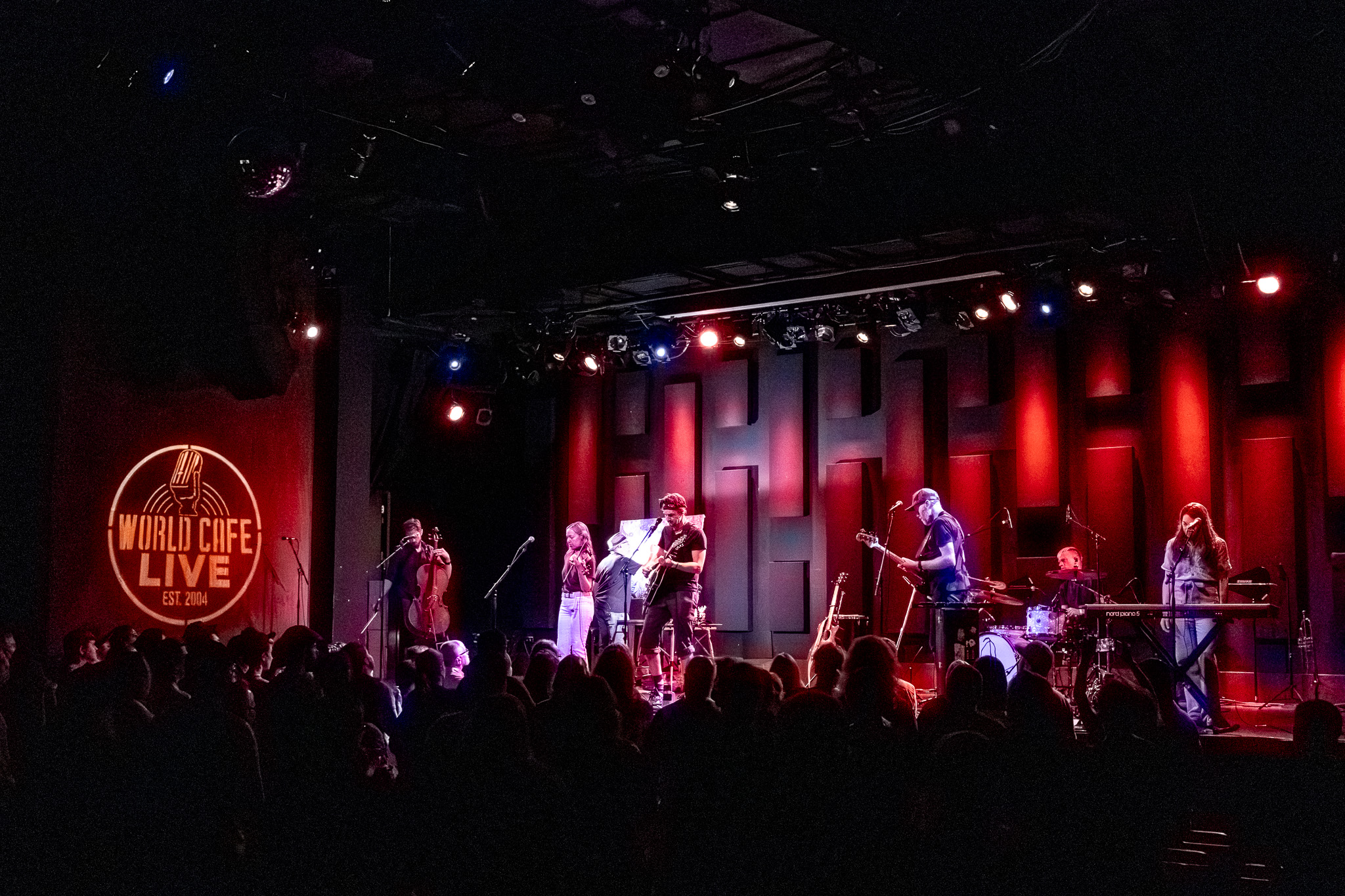
On May 3, the Trump Administration began announcing the cancellation of National Endowment for the Arts grants. The recent recession of NEA grants is sending shockwaves through the arts ecosystem in Philadelphia and across the country. Community-based institutions like World Cafe Live in West Philadelphia are reeling from these cancellations and find themselves having to rethink crucial programming that relied on the grants. For organizations working at the intersection of performance, education and social impact, these cuts threaten far more than individual programs—they strike at the heart of accessibility, equity and sustainability in the arts.
For over a decade, WCL’s Bridge Sessions have offered thousands of Philadelphia students—particularly from underrepresented communities—a hands-on introduction to music, culture and the performing arts. These field-trip style experiences blend performance and interactive learning, exposing students to genres and stories they may never otherwise encounter: “The Bridge Sessions are a cornerstone of our mission,” said WCL’s Director of Development, Jessica Pasquariello. “Without them, the soul of our outreach work is at stake.”
WCL had been expecting to receive an increased NEA grant this year. The grant was not just financial support; it was a national endorsement. “It’s incredibly critical,” Pasquariello explained. “Grants from the NEA signal that the programs have been vetted and are successful and necessary… it signals trustworthiness.”
But the rug was pulled out from under WCL when the NEA announced the rescission late on a Friday evening. The news left key staff reeling—and planning. Though a post from WCL announcing the rescission of the grant was responded to with an outpouring of donations from followers, funding for the programming is no longer a guarantee and cannot be counted on. “We still held all Bridge Sessions in the spring,” she said, “but the funding just isn’t there. We may need to hold back in the fall.” The arts are often dismissed as a luxury—something nice to have but expendable when budgets tighten—but the data tells a different story.
Arts education and programming drive significant economic activity, offering job opportunities for artists, staff, local vendors and service workers. At WCL, canceling a single event can ripple outward, affecting income for artists, production techs and venue staff. “If Bridge Sessions don’t happen, our artists don’t get paid. The production techs don’t get paid. The facility staff doesn’t get paid. People’s shifts are taken off the schedule.”
The economic consequences of grant rescissions are especially damaging to smaller organizations that may lack the visibility or reach to quickly mobilize public support. “The NEA announcement showed a huge outpouring of community support for our Music Futures campaign,” she said. “But that reach is harder for smaller organizations.”
Still, the team at World Cafe Live is not giving up. For them, Bridge Sessions are a crucial aspect of their organization. “You can feel what the room feels like when 100 middle schoolers are engaged—it’s worthy, it’s necessary,” Pasquariello noted. Bridge Sessions are more than concerts; they are curriculum-aligned experiences that embed music in broader educational goals. They help teachers build momentum in classrooms and create memories that stay with students long after the last note is played. “There’s something sticky that happens when a field trip is music-related,” she said. “It stays with kids. It goes beyond the classroom.”
As NEA grants disappear, the burden of sustaining arts education falls to local governments, foundations and individuals. But supporters of the arts—both institutional and individual—still have an important role to play. “Support the organizations that mean a great deal to you,” Pasquariello urged. “If you can just buy a ticket and go to a show, do it. If you can make a donation, do it. And be loud about it! Share their materials, call your legislators—it matters.”
For WCL and organizations like it, the road ahead will require creative fundraising, community advocacy and above all, a belief in the value of what they do. “The Philadelphia arts scene is doing everything in its power to survive,” she said. “We really need the city to lock in and realize that they’re the ones who are going to make the difference.” In a city that prides itself on creativity and grit, that survival is not just admirable—it is essential.


